About My Father
It's been almost three years since he died, and though we were never close I still miss him
(CAPT Jack R. Cluth, Sr. and his unique two-fingered typing style)
Today’s Father’s Day, and I hope y’all are celebrating appropriately or, better yet, being celebrated. I never had children (my decision, and one I don’t regret), and I lost my father almost three years ago, on July 22, 2020. He was 82 and had a good run. Jack R. Cluth, Sr., whom I’m named after, didn’t get cheated, though his latter years were challenging.
Dad and I were never close, and in my early years, I often wondered if biology was the only thing we had in common. In virtually every other way you could think of- dispositionally, philosophically, ideologically, you name it- we were at opposite poles. If Dad told me something was white, I was convinced it was black. If he said down, I wanted to go up.
And so it went for 18 years of subtle and not-so-subtle psychological and (sometimes) physical warfare. Dad was a product of his time, and physical beatings were a part of his discipline process. He’d frequently beat me on my bare ass with his belt, and the sound of him removing his belt was enough to make me physically ill. Instead of instilling obedience in me, it made me resent him more with each instance. The physical abuse was something I came to accept because I didn’t know anything different. I didn’t know anything COULD be different.
(This was one of the biggest reasons I didn’t have children. I was terrified I would do the same thing to my own progeny, and I couldn’t live with that fear.)
As I found out years later, I took the abuse for my younger brothers, who observed what I was enduring and determined they wanted no part of it. The three of them co-existed with Dad on a much more peaceful level.
By the time I reached high school, I hated my father as much as I loved him. If you’d asked me then, I’m not sure I would’ve had the maturity and the emotional wherewithal to separate my love for him from my hatred and disdain. They existed together, inseparable and impossible to separate.
There’s no way I can do justice to my father or my relationship with him in 2000 words or so, but it’s something I’ve spent my life trying to unwind. The impact on me has been profound, but now that he’s gone, I’ve finally found it within me to let it go. Sadly, it took his death for me to escape his grip on me, but saying that the relationship between fathers and sons can be complicated isn’t exactly breaking news.
I’ve often wondered why Dad couldn’t meet me halfway. Why did it always have to be his way or no way? Why couldn’t we talk our disagreements out like reasonable people? I never set out to be openly disagreeable or disrespectful, but neither did I feel that being dictated to like I didn’t have a brain of my own was respectful.
Dad was an Army Reserve officer, used to giving orders and having them obeyed without question or delay. His father wasn’t known for being warm and cuddly, though I never had a chance to know him. Grandpa Cluth died when I was five or six, and I remember nothing of him except what Dad told me, which wasn’t pleasant. Grandpa came from a poor family that scrounged for everything they got. Everything in his life came hard, and very little of it was enjoyable.
Dad could at least laugh, and he did have a decent sense of humor, but he was also quick to anger, especially when I didn’t obey an order as quickly as he felt I should. Over time, I came to resent feeling like I was being treated like one of his enlisted men, not his son. There were many orders and very little affection.
All I wanted from Dad was to understand the “why.” I didn’t set out to be disobedient, but in his world, the only proper response when being told to jump was “How high?” not “Why am I jumping?” I wanted to understand the “why,” the reason(s) behind the order I’d been given. It wasn’t that I was unwilling to jump or being willfully disobedient. I just wanted to understand what I was expected to accomplish.
What my father heard in my questions wasn’t inquisitiveness and curiosity but insolence and disobedience. He couldn’t tolerate hearing his orders being questioned, especially from his oldest son, from whom he expected nothing but complete, unquestioned obedience.
“HOW HIGH, SIR???”
I don’t recall hearing my father saying “I love you” or hugging me until I initiated it at the behest of a counselor I saw in my mid-20s. There was almost no positive physical affection or verbal encouragement in our household. Not that it was a miserable place to grow up, but neither was it a place I remember as overwhelmingly supportive or encouraging.
I was writing to colleges and universities in seventh grade because while I had no idea where I would go or what I would do, I knew I had to get out of Dodge. The one thing I knew above and beyond anything else was that I couldn’t stay at home, and I wouldn’t enlist in the military like my three younger brothers eventually did. That choice didn’t suit me, so I resisted my parents’ pressure to enlist. I wanted to go to college, even though no one in my extended family had ever done so. Education beyond high school had never been a value in my family…but I wanted it to be a value for me.
My parents never understood my decision to go to college and never offered financial assistance. Over my four years, I received a total of $35 from them. If my high school years hadn’t convinced me of my role as the family's "black sheep," my college years set it in stone.
Many misunderstandings, miscommunications, and overwhelmingly ugly things happened while I was in college and immediately thereafter. The result of all the heartache was a roughly 20-year period where I saw my parents perhaps two or three times. Included in that time frame was the worst Christmas I’ve ever endured- so much so that I swore I’d never spend another Christmas with my family again.
(Dad in his favorite chair. He wasn’t a fan of the cat, but the cat was certainly a fan of his lap.)
During that time, my father suffered a massive stroke in 1991. He was only 53 and lost his ability to speak save for uttering one- or two-word responses. That would be the case for the final 29 years of his life, which meant any chance of a genuine, heart-to-heart rapprochement with Dad disappeared.
I don’t know what I would’ve said to him, and I suspect that any conversation we might’ve had would’ve been intensely uncomfortable and perhaps even contentious. I’m not even sure we would’ve been able to solve anything or if we would’ve succeeded only in re-opening and re-salting decades-old wounds.
Ultimately, perhaps it was better for both of us to leave our communication as it was. I was forced to recognize that what I’d wanted from him- an apology- would never happen. Even if he could communicate as he had previously, he may not have been willing to apologize. And, if he had apologized, what would I have done with it? Once presented with an apology, it would’ve been up to me to forgive him, something I’m not sure I had within me to grant.
Because he couldn’t communicate with me, I was forced to meet him where he was. He could, and did, say, “I love you,” which was as disarming as it was sincere. Given what he'd been through, I couldn’t stay angry at him. I knew the words were heartfelt because I understood how difficult it was for him to produce them.
And so I managed to find forgiveness, at least insofar as I could.
(Mom and Dad in the driveway of their home outside Sparta, WI)
Over the last few years of his life, I learned to let go of the anger and enjoy Dad. I couldn’t maintain my anger when there was no way for me to sort things out with him. My only real option was to enjoy him for where he was and what he had to offer. It was clear he was becoming progressively and rapidly more frail, though I didn’t know the degree to which his health had deteriorated.
Then came the day- July 22, 2020- when my youngest brother called to tell me that Dad had died. I was shocked but not surprised. Dad had gone out to putter around in the yard as he did every day but didn’t return to the house for lunch as he usually did. So Mom went out to see what he was up to, only to discover him face-down next to a tree in their yard. Dad had suffered a massive heart attack and dropped dead. Death had been quick, and Dad likely didn’t suffer. I’m grateful for that.
He went quickly, and I hope that, in his final moments, he knew he was loved and would be missed.
(Dad’s headstone at Burns Township Cemetery outside Sparta, WI)
There are many things I wish I could’ve said to Dad, and, yes, many things I probably could’ve apologized for. Dad was ferociously stubborn, and his eldest son didn’t fall far from that tree. It was a recipe for serious head-butting, precisely what happened for 18 years.
I wish it hadn’t been like that, but neither of us knew any other way. Dad wasn’t a warm and fuzzy person. He wasn’t the type to sit beside me, put his arm around me, and offer encouragement when I was struggling. I don’t think he could relate to much of what I endured in high school or college because it was beyond his own experience. Because of that, I never felt much support from Dad, and I always felt very alone, particularly in high school—everything I achieved I figured out on my own. When I was successful, Dad never offered much in the way of congratulations, perhaps because I’m not sure he ever understood what I’d achieved.
He never understood what drove me, my passions, and what I truly cared about. I never felt that he took an interest in learning those things. He never opposed the things I did or cared about, but neither was he particularly interested.
So now, at 63, I can continue to carry those things with me, or I can set them aside so they may recede into the past where they belong. Dad’s gone, and our decades-long internecine warfare no longer matters. What does matter is that my memories of him focus more on his final years. I remember him as someone who loved and enjoyed his family even though he struggled to communicate with them. He laughed easily and smiled frequently. And he drank coffee that he would make in the morning and by late afternoon would have the consistency (and probably the flavor) of used motor oil.
And I miss him.





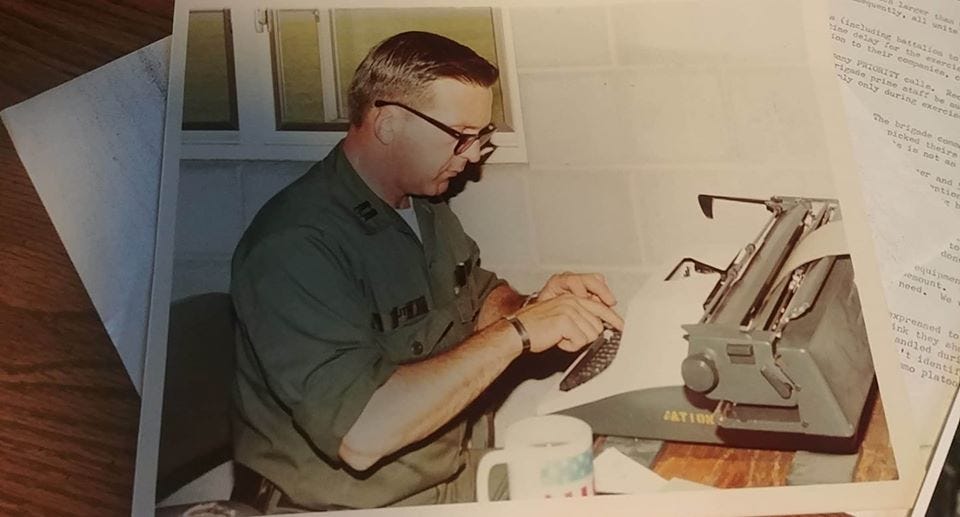
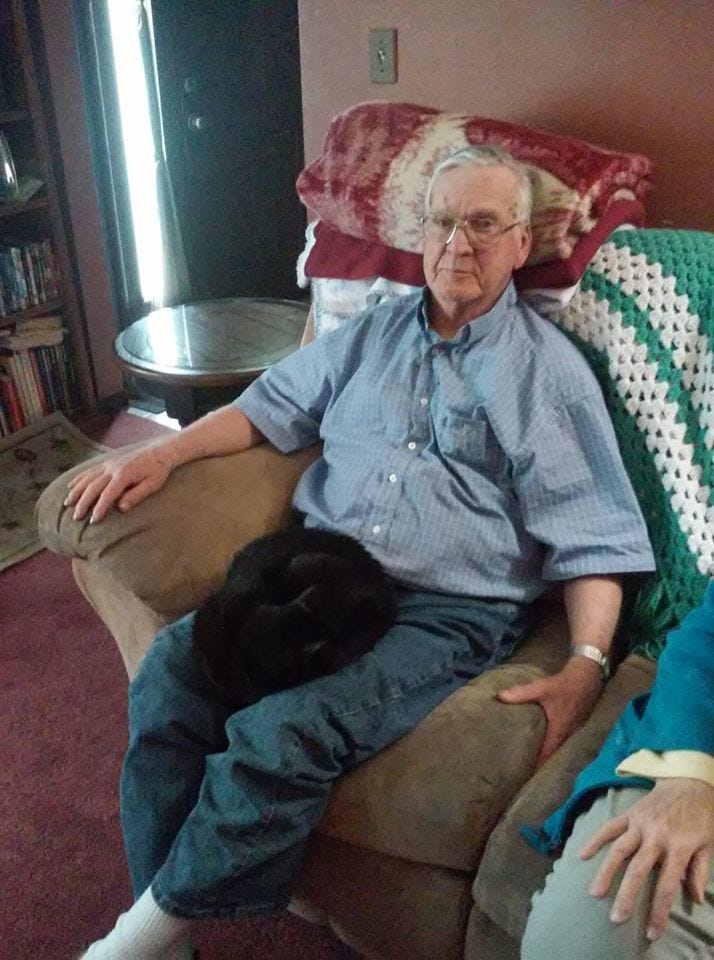
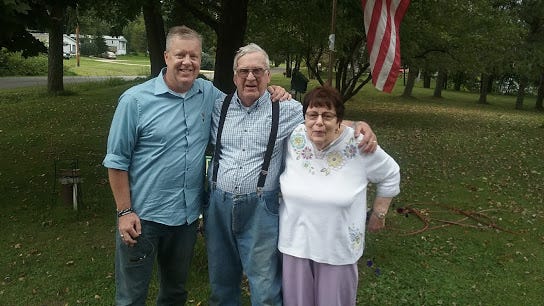
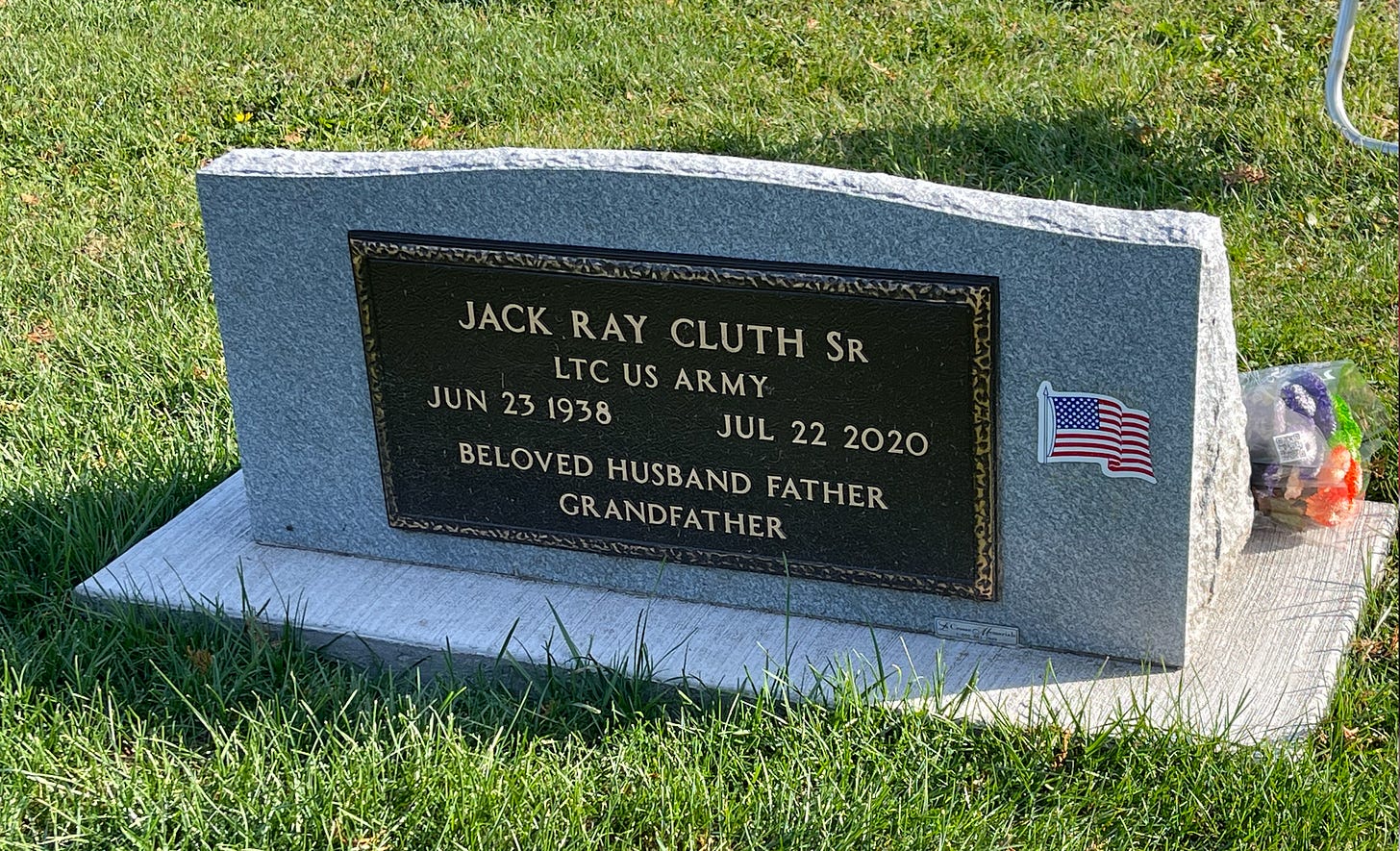
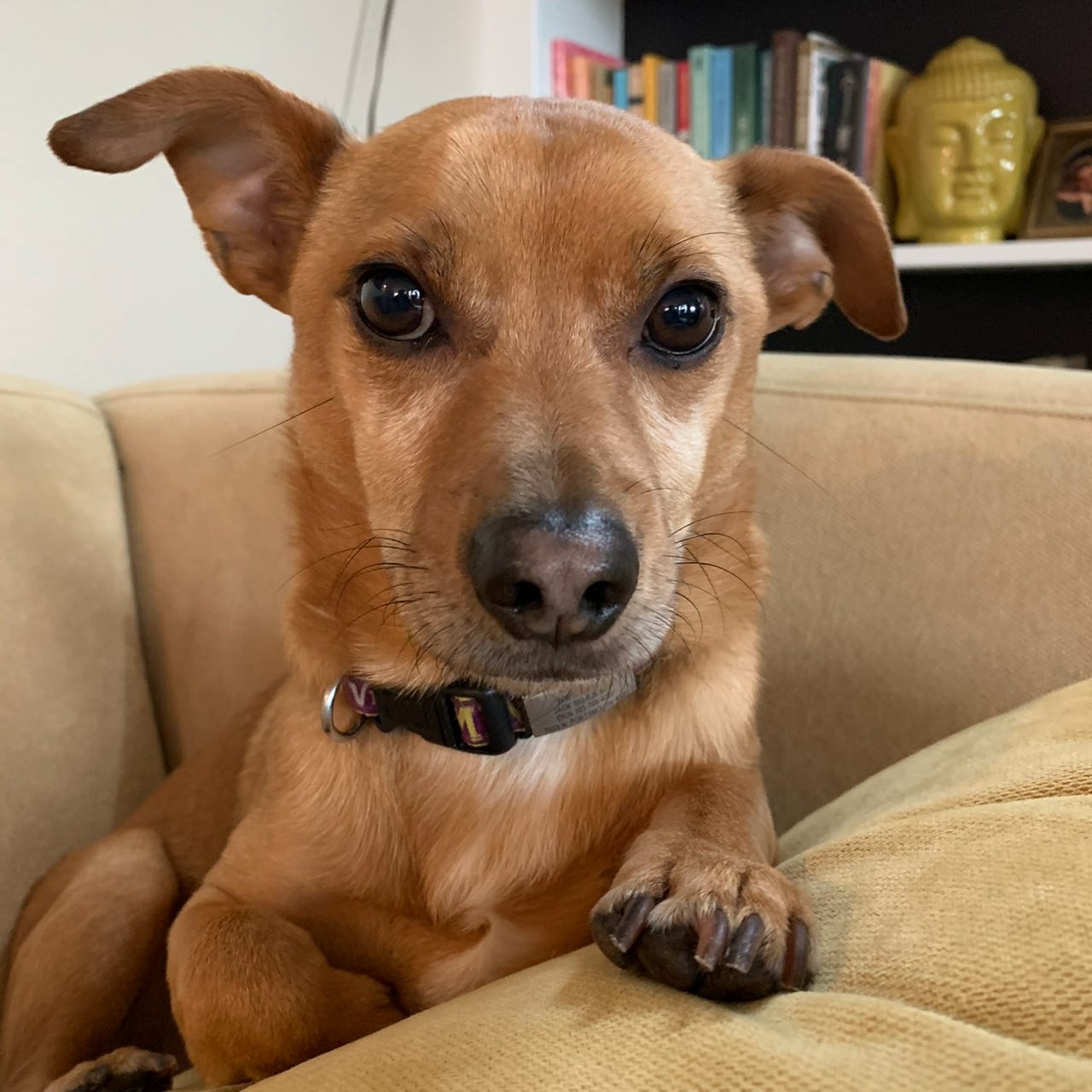
This breaks my heart. My guess? Of all the brothers, you are likely the one who is most like your dad. It usually works that way. That poor bastard did love you. He just never had your compassion, intelligence, and sensitivity.
My mother and I had a contentious relationship. I mostly avoided her. As a mother myself, I feel terribly sorry for parents whose coldness, judgment, and personal bullshit get in the way of a relationship with their kids.
As a eulogy, this demands respect. Writing about oneself like this can be cathartic; but is sure to be painful.
Jack, may the rest of your day be restful, and re-creative.